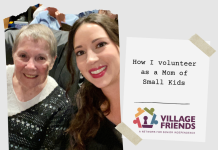 Like you, I have been caught off guard in 2020 in many ways. No one likes to feel out of control, and especially not moms! We have the responsibility of keeping things running smoothly at home and for our kids even when things are in turmoil. It’s exponentially harder to think of solutions to a problem when the kids are freaking out, am I right?
Like you, I have been caught off guard in 2020 in many ways. No one likes to feel out of control, and especially not moms! We have the responsibility of keeping things running smoothly at home and for our kids even when things are in turmoil. It’s exponentially harder to think of solutions to a problem when the kids are freaking out, am I right?
I’m a planner by nature. I enjoy it, I’m good at it, and it helps my family. Lots of my plans this year have been canceled; I’m sure you can relate. But, rather than dwell on that, I can choose to view it as an opportunity to make new plans. I know to hold them loosely, and to make backups for my backups when possible. I came across a quote by Brian Tracy that says, “Every minute you spend in planning saves 10 minutes in execution; this gives you a 1,000 percent return on energy!” This is a helpful thought as I have been focusing on our strategies, supplies, and action steps for emergencies. Here are some ways we are preparing for the unexpected in our family.
Relational Preparedness
This one probably isn’t top of mind but is paramount in importance. Questions you may need to consider are “Who will take care of our kids if we die?”, “Who can we call on in the event of a health crisis?”, “Who can pick up my kids if I can’t get to them?” If you have a child and do not have a will, I would urge you to put that on your to-do list this week. Yes, it’s unpleasant to think about death, but it’s more unpleasant to think about your children and your assets being managed by a stranger. It’s not a complicated process once you have decided what your wishes are. You can have a lawyer prepare it, or you can DIY, as long as it is written and signed by two witnesses (preferably notarized, as this expedites the probate process in the event that it needs to be enacted). Having these difficult conversations with your spouse, family, and close friends can really solidify your priorities and strengthen the bonds you have with these important people.
Financial Preparedness
I was shocked and saddened to learn that nearly 6 out of 10 Americans cannot cover a $1,000 emergency. That sounds like such a stressful way to live. How much you need to have saved for emergencies depends on your financial and family situation, but I would set $1,000 as a temporary minimum, and ultimately be working toward having 3-6 months of expenses set aside in a high-interest savings account or money market account. Being able to cover car or home repairs, medical bills, or weather a job loss gives me much peace of mind. In addition to an emergency fund, if you have dependents, you need term life insurance, even if you are a stay-at-home parent. I always say it’s my favorite bill to pay and the only money I hope to never see a return on. Setting up these financial fences provide additional security for your family in the event of an emergency.
Physical Preparedness
None of us expected the run on toilet paper when the pandemic spread to the US! While you can predict every type of emergency, you can find general guidelines about what to have on hand in an emergency. Things like enough food and water for 72 hours, smoke detectors, fire extinguishers, a weather radio, back up power sources (even if it’s just to charge your phone), and critical medications should be readily available. Following the 2019 tornado, our power was out for 20 hours. Without a backup power source and the temperatures dipping below freezing within 36 hours, we made a plan to leave the house the next morning, thanks to a resource from a friend. Again, relational preparedness is key! I spent about two hours packing everything we might need for a few days, and just as we had loaded our kids in the van, the power came back on! We have since invested in a generator that can run several critical appliances in our home. This is not a cheap item on our preparedness list, but with the most common emergency situation involving a loss of power, and the difficulty of bugging out with four small children, we decided this should be a high priority for us.
Spiritual Preparedness
This is not the place where I’m going to preach to you, but I can recommend pressing into your spiritual foundation and making sure it’s solid. You might not be able to foresee every weak spot in your beliefs ahead of a life-impacting crisis, but if you have burning questions, make it a point to look for answers. Leaders and friends in your faith community can be very helpful, but sometimes the work is primarily done introspectively. When your life is knocked off-balance, spiritual confusion or questioning is not uncommon and is often part of the process of deepening your convictions. But the more you have settled in your mind, heart, and spirit ahead of an unexpected challenge, the more quickly you can find your sea legs in the midst of the storm. Having this certainty in your spirit is helpful for your children who have not had many life experiences and can be especially frightened, confused, and anxious when the adults in their lives are overwhelmed by the circumstance. When you are calm and hopeful, it is much easier for them to be also.
How has 2020 shed light on your preparations for the unexpected? Have you been largely unimpacted due to deep and wide reserves? What have you learned that can help you become better prepared for the future? And has anyone seen replacement sponges for dish wands, because I keep coming up empty! If I ever find them, I’m adding several to my emergency stash!
Read more from Susannah here.











